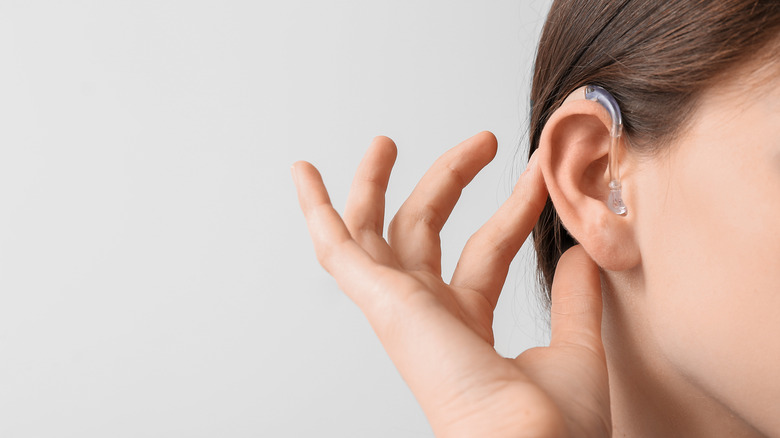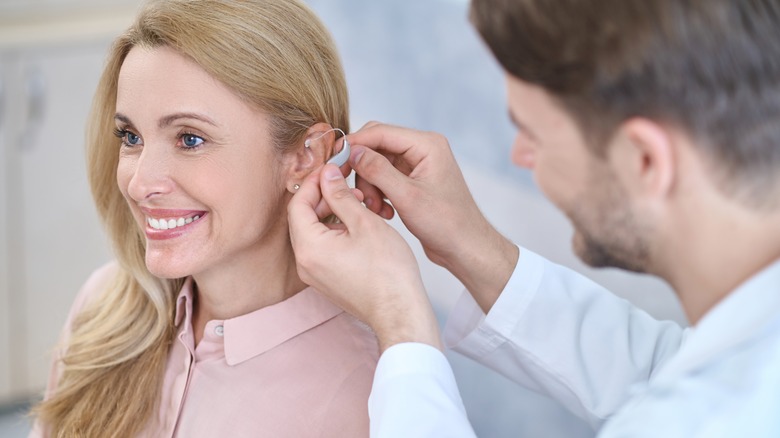The Top Things To Consider When Choosing An Over-The-Counter Hearing Aid
Millions of people suffer from hearing loss, but many don't know that they have a variety of treatment options, including over-the-counter hearing aids. While hearing aids have previously required multiple doctor visits and insurance claims, consumers can now purchase these hearing devices in retail stores across the United States (via NPR). While there are some great benefits to choosing over-the-counter devices, there are also a few things to consider before making your purchase. The first is the severity of your hearing loss. While OTC hearing aids will be able to help adults with mild to moderate hearing loss, they will not be strong enough for people with severe hearing issues. They are also not suitable for children.
Another thing to keep in mind when choosing a hearing aid is your budget. You can expect to spend anywhere from $200 to over $800, so you will want to do your research to find the option that best fits your needs and budget. And price isn't the only thing you will want to do your research on. Similar to buying any product, you'll find that there are many options out there that offer different features. Even though hearing aids are now offered over the counter, it may be helpful to talk to your doctor about the styles and brands that will work best for you.
What you need to know about hearing aids
If you're one of the millions of people who suffer from hearing loss, you may be wondering if hearing aids are right for you. Hearing aids are small electronic devices that you wear in or around your ears. They make sounds louder so that you can hear them better (via Johns Hopkins Medicine). Hearing aids can improve your quality of life by helping you to communicate better with others and stay involved in activities that you enjoy.
There are two main types of hearing aids: digital and analog (via The Better Hearing Center of Austin). Digital hearing aids are the most common type. They use computer chips to amplify sound. Analog hearing aids are less common, but they may be a good choice for people with certain types of hearing loss. Hearing aids need to be cleaned and maintained regularly to work properly. Be sure to follow the manufacturer's instructions for how to clean and store your hearing aid. You'll also need to have your hearing aid checked by a professional every few months to make sure it's working properly. If you're considering getting hearing aids, talk to your doctor or an audiologist. They can help you choose the right type of hearing aid for your needs and make sure that it's fitted properly.


